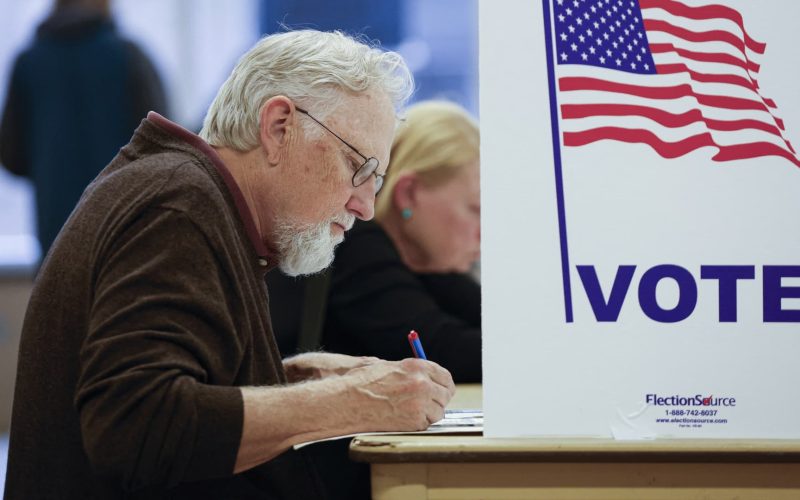This year is a “super election year,” with more than 60 countries — encompassing around half of the world’s population — hosting national elections, according to Statista.
Promoting a healthy economy is high on the list of expectations of voters globally, according to a recent report by Principal Financial Group. But even when the economy is doing well, many people have developed a more polarized — and negative — perception of the economic environment overall, a disconnect known as a “vibecession.”
Whether or not that influences how people vote, the vibecession doesn’t appear to have shown up in how they invest.
“As we look at our own member base, nearly 10 million plan participants, they’re not moving their money,” said Dan Houston, the chairman and CEO of Principal Financial Group, in an exclusive interview at CNBC’s global headquarters in Englewood Cliffs, New Jersey. “They’re staying the course, and they know that they’re well served to stay in a well-diversified portfolio.”
Principal offers retirement plans and other financial products to 68 million clients, including institutions and individuals, around the world.
U.S. is ‘treading water’ on financial inclusion
Since 2022, Principal’s Global Financial Inclusion Index has measured how governments, employers and financial systems promote financial inclusion of consumers in more than 40 markets.
This year the United States fell three places in the ranking to 7th overall. Singapore and Hong Kong, respectively, hold the top two spots.
“The U.S. is sort of what I would call treading water, while other countries, in particular, those who have adopted digital forms of financial transactions and enhanced their financial literacy, they’re the ones making up ground,” Houston said.
The economic outlook for 2025 is unclear, he added, but how the elections turn out and the policies that come from the results will play a key role in the financial inclusion of consumers worldwide.
SIGN UP: Money 101 is an eight-week newsletter series to improve your financial wellness. For the Spanish version, Dinero 101, click here.
Source link









